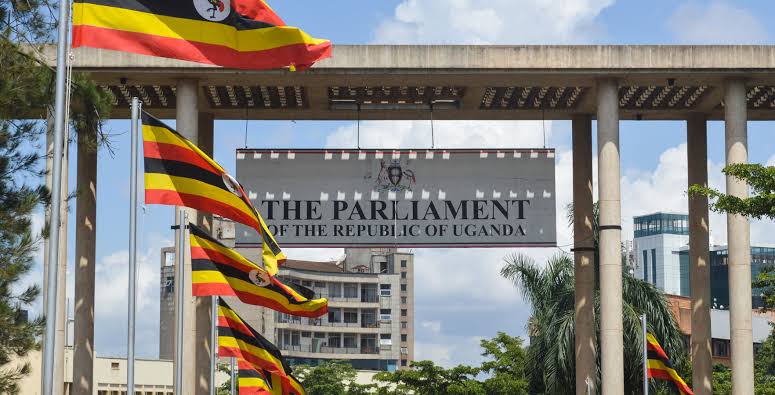By Sekaggya Seka Moses
In a move that has sparked controversy, Uganda’s legislators from both the ruling National Resistance Movement (NRM) and opposition parties have received Shs100 million each.
The payments, sourced from the recently passed Shs4 trillion supplementary budget, have raised eyebrows due to the secrecy and timing of the disbursements.
In the weeks leading up to the most recent NRM caucus meeting, President Museveni faced immense pressure from his 337 MPs to provide a windfall to support their participation in the upcoming NRM grass root structures elections.
The MPs, who have been transactional in their approach, initially demanded 50 million shillings each but were surprised to receive 100 million shillings instead.
This amount was given to them in cash, allowing them to avoid statutory deductions like Pay As You Earn tax.
The distribution of the cash went on throughout Monday night, with each of the extortionist NRM MPs receiving logistical facilitation to ensure their success in the grass roots structure elections.
According to a well-briefed source, the MPs have been pressurizing the president to organize and give them some windfall so that they are able to meaningfully participate in the upcoming elections.
The rationale behind giving the MPs this money was ostensibly to enable them to mobilize and create momentum and media vibe for the grass roots exercise.
However, many MPs are using this chance to promote their own personal interests as incumbent politicians still interested in carrying the NRM flag. In many constituencies, being the NRM flag bearer is all one needs to be assured of reelection.
The MPs are supposed to use this 100m to facilitate fellow NRMs to engage in activities that can create a positive vibe and publicity for grass roots structures elections.
Those who get elected to form grass root structures at Uganda’s more than 72,000 villages qualify for inclusion into the decision-making structure at parish, sub county, constituency, district levels and beyond.
It’s through this exercise that people begin to get assured of victory in party primaries to carry the ruling party’s flag, which comes with generous financial facilitation and also backing from the RDCs and the rest of the security apparatus in the districts across Uganda.
One MP was excited that this latest windfall of 100m was given in cash as opposed to going through the banking system where it would be subjected to statutory deductions.
“Apart from being taxed, the cash would also be susceptible to being grabbed by moneylenders with whom many MPs have outstanding loan balances. The money would be attached to discharge such outstanding debt obligations,” says an MP.
Many caucus members are worried about the leakage of information relating to the 100m they have each received.
“Once they know that a grant of 100m has landed, voters and our agents will demand their share, in which case the 100m becomes peanuts because it can get blown up by endless voter demands within just a day or two.”
Another MP said that they are also expecting something from the speaker of parliament since she is eyeing the CEC position of being the 2nd national vice chairperson, currently held by Rebecca Kadaga.
The idea is that facilitating MPs to ensure NRM structures in their constituencies are filled with people friendly to them increases chances for the speaker to defeat Kadaga.
In total, the 11th parliament has 529 MPs, of whom 337 are NRM. There are 73 independents, more than half of whom are NRM-leaning and have MoUs with the ruling party. Under such cooperation, those independents too qualify for the 100m, and indeed, each one of them has received it.
The NRM earmarked 33.7 billion shillings to splash on its 337 MPs, which has since been dished out through the chief whip’s office.
When the independents’ allocation is factored in, plus the administrative expenses associated with operationalizing and supervising the dishing out of the same cash, the NRM must have parted with something like 45 billion shillings or more on MPs alone to enable them to effectively participate in the NRM grass roots structures formation exercise.
Sharing 45 billion shillings in such a manner is seen as huge and almost insensitive at a time when many million Ugandans are struggling to meet life’s basics, such as affording malaria treatment or putting food on the table.
Already, NRM cadres operating under such recipient MPs in the respective constituencies have demanded to be generously facilitated before doing any work relating to the structures formation exercise.
Incumbent MPs’ opponents are inciting ruling party voters to bombard their MPs with phone calls and even storm their homes and constituency offices, demanding their share of the 100 million shillings windfall.
The recipient MPs are being required to share out the money freely and as generously as possible because they too received it freely without any conditions.
Another source from the Leader of opposition in Parliament Joel Ssenyonyi via his facebook account said, 100M was a reward for coffee bill that was passed and also readiness of amendment to the UPDF act.
“We’ve learnt that there is money which is surreptitiously exchanging hands in Parliament. Information reaching us is that they are giving each NRM MP (and a few selected opposition MPs) 100m shs each, as appreciation for the coffee bill that was passed, and also in readiness for the proposed amendment to the UPDF Act which will seek to cement the trial of civilians in the Court Martial inspite of the Supreme Court ruling.
Our Country needs a reboot, ” Joel wrote on his facebook account.
Though parliament has denied giving out this money
“I am not aware of anything like that, you are breaking news to me. There are clear channels on how MPs receive their money and besides that, we don’t know anything,” said Ms Grace Gidudu , the assistant director, CPA Parliament.
Have An Advert Or Article You Want Us To Publish? Whatsapp: +256786288379 or email binocularugnews@gmail.com
